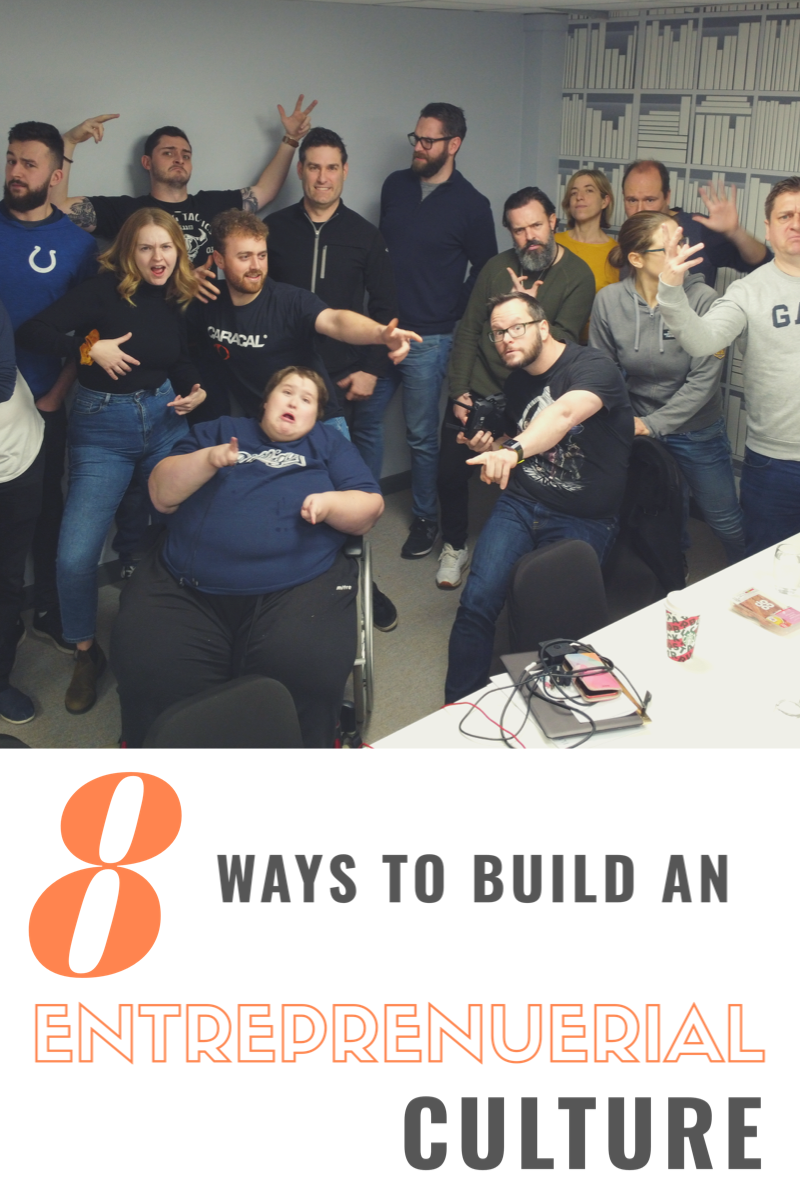|
Back to Blog
Building an entrepreneurial culture11/3/2020
Finally I asked the director of innovation, "How about we do ….. to change it?" He looked me straight in the eye and without a hint of irony said, "This is not something we can change!" I left that meeting feeling shocked, confused, and with a question burning within me: "How do you create a vibrant, positive entrepreneurial culture in your business, and what stops people from doing this?" Do you really want an entrepreneurial culture?Many of the top companies in the UK claim they want to develop an entrepreneurial culture to help their business succeed but most of them never take action. So many of the businesses I have worked with over the years say they want to innovate, say they want to try new things and grow, but when it actually comes to it they choose the safe option every time. Why is this? Why are you so scared of innovation and change? Why are corporate organisations in general strangling entrepreneurialism? As we think about entrepreneurial culture, I would love you to please broaden your thinking to different groups as well, families, couples, church groups, clubs, small companies, networking groups and more. Every one of these groups has formed a culture over the time they are together, and this thinking applies to them as well. As you read on think about how this might apply to your friend group or family as much as it does to business. Let's have a look at the downside of an entrepreneurial culture.
The benefits of an entrepreneurial cultureThink of all the organisations that have failed because they didn't innovate or change. Blockbuster had the number 1 position in the movie rental market, they had all the resources and position but didn't change. They were offered a chance to partner with Netflix but turned it down because they thought it was a niche offering! They are now bankrupt and Netflix is worth $28 billion. Kodak invented the first ever digital camera and the inventor was told, "That's cute - but don't tell anyone about it" because of the fear it would affect sales of traditional film! Is that an entrepreneurial culture? Xerox, Nokia, Toshiba and so many more companies have failed because they didn't move with the market, innovate or be entrepreneurial. If an entrepreneur had been at Kodak he would have taken that digital camera and started selling it on the side, challenged the leadership's decisions or made it work another way. It takes a special type of person to be an entrepreneur in a culture that is the opposite. The number 1 reason for being an entrepreneur is that you stand a chance of developing, changing, moving with the times, and not being killed by change. Change is inevitable and it is how you respond to it that is important. Being entrepreneurial does not guarantee success, but it at least gives you a chance to bring something to the market and the opportunity to make a profit. What are the benefits of an entrepreneurial culture? There are so many, and they are so varied. Here are a few I have noticed:
How do you go about developing an entrepreneurial culture?The big question then becomes, "How do you develop and entrepreneurial culture?" My business partner Simon and I have worked for so many organisations that are the opposite of this that we have a pretty solid idea of what not to do! The starting point of our Company culture at Rebel has been looking at other organisations and thinking how can we do the opposite?
Building an entrepreneurial culture is as much about removing negative behaviours as it is about introducing positive behaviours. If you can remove judgement early on, stop people from killing ideas, stop people protecting their status and then build in new behaviours of creativity then you will create an amazing culture. The entrepreneurial challengeTo start you going I have designed this challenge for you to do with your family, team, group, or business. The purpose of the challenge is to help you build some of the entrepreneurial thought patterns and habits that will have a positive effect on every area of your life.
Find 3 to 10 people to do this with once a week. It should only take 15 minutes. If you don't have any friends or are a solopreneur then it works just as well if you get out pen and paper and work through it on your own. Answer the following questions:
This is a simple structure to help train your brain to look for innovation, creative thoughts and learning each week. If you train your brain and the brains of those around you to positively look for how to improve every week you will have developed one of the most important parts of an entrepreneurial culture. For more reading about the entrepreneurial mindset check out Doing things differently How do you know it is possible? Standing up to the rules As always your comments and thoughts light me up! Let me know of anything you think I have missed, comments or questions below! Sending you positive vibes! |
DONEGAN |
We built this website to share our stories, the adventures, the amazing people and all the life lessons we've learned along the way!
SIGN UP to our mailing list
|

 RSS Feed
RSS Feed


